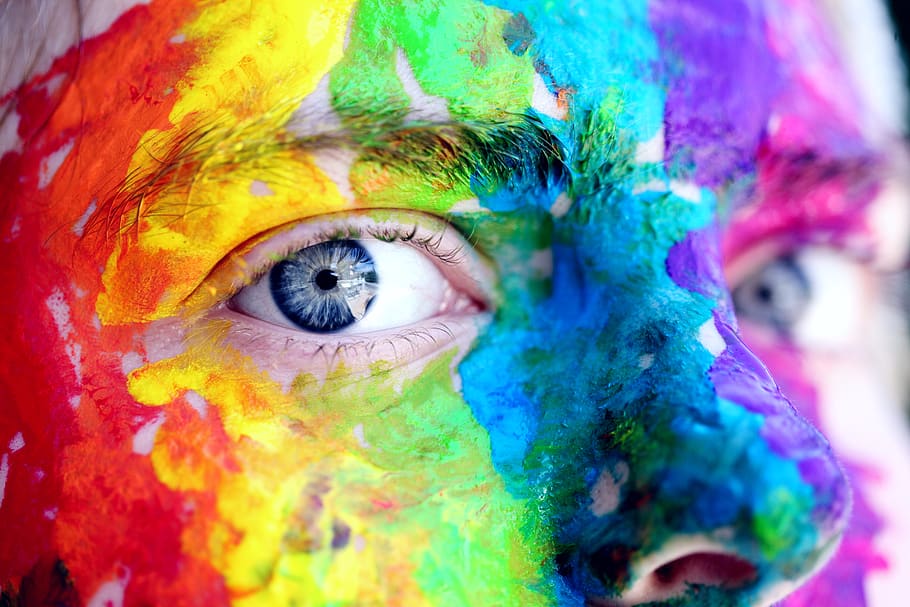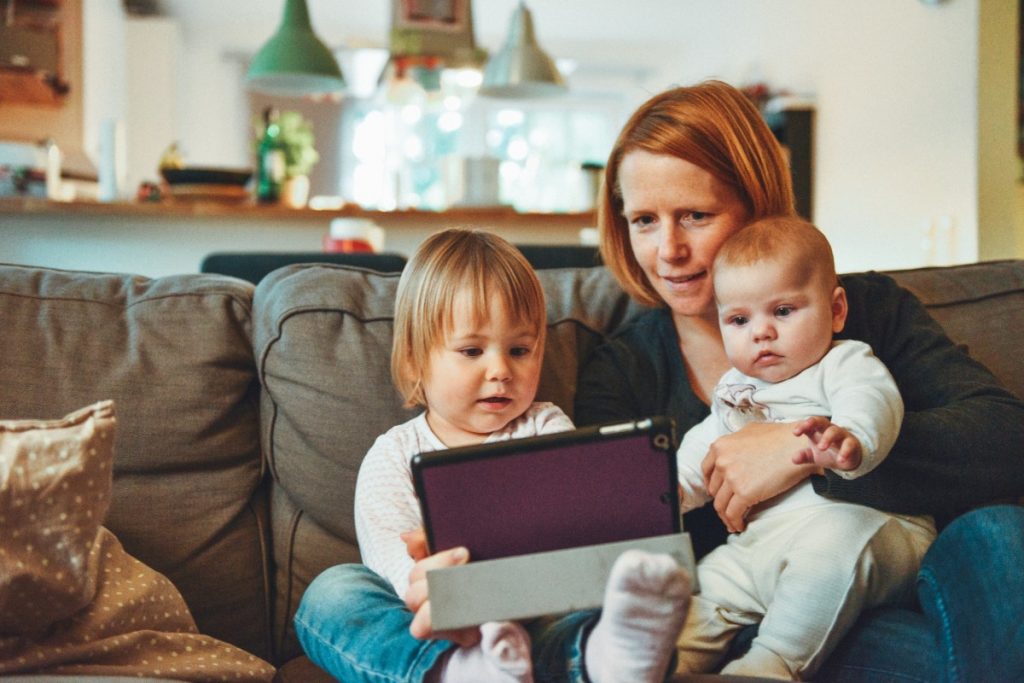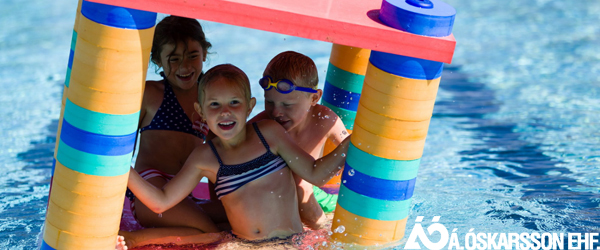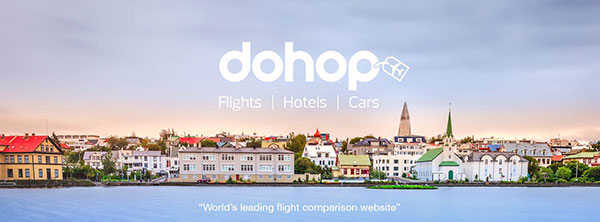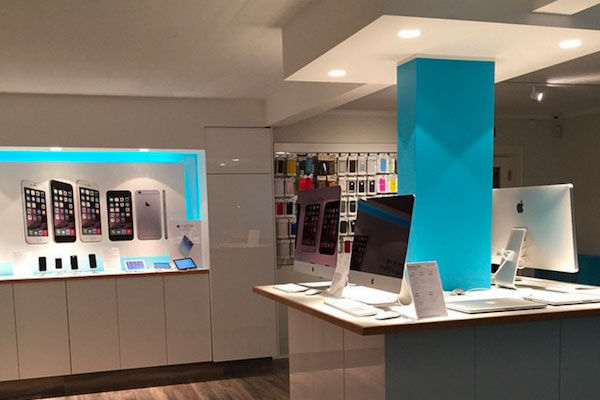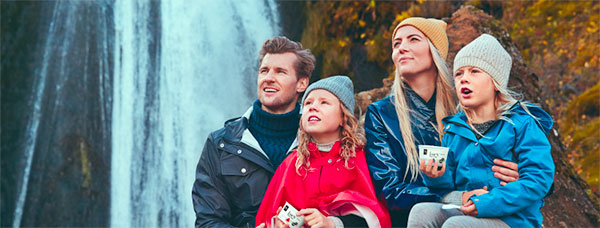Trans rights are being attacked everywhere, but Iceland is fighting back with activism and legislation.
Over the past decade, activism for trans rights, protections, and healthcare have gone into overdrive globally. More of the queer community is waking up to the discrimination the trans community is still facing, and those outside the community are as well. Although trans visibility and representation in the media has also gotten better, there’s still more progress to be made. Iceland is working to change the narrative in both big ways and small.

In late December, Iceland’s parliament voted almost unanimously on three laws to add protections for intersex and trans children. The laws revise outdated language, lower the age for changing your legally registered gender to 15, and allow children born with atypical sex characteristics to determine their own path when they’re of age.
This legislation is in direct contrast to the anti-LGBT+ laws we see developing in the US and across the EU. Most notably, Hungary is in a cultural war with the rest of the European Union over censoring out LGBT+ representation. Luckily the EU has decided some action is needed in response and people are demanding Iceland stand against Hungary’s actions.
It’s not all doom and gloom after all. Just last week past presidential candidate turned Secretary of Transportation Pete Buttigieg was on The Late Night with Stephen Colbert saying “there are politicians who’ve decided it’s good politics to attack transgender kids, which are some of the more vulnerable people in our society.” He continued: “high school is terrifying for trans kids, hell high school is terrifying when you’re not transgender, right? And these kids have the courage to be who they are, and they just want to be accepted and go to the bathroom like everybody else and play sports like everybody else and live.”
Buttigieg then went on to mention how public villainization of transgender people impacts the mental health of young trans people. “The really dangerous thing is if you have people in positions of responsibility going around, who’s position is basically that transgender people don’t exist, some young people will hear that message as that transgender people shouldn’t exist. And some of them will believe it,” he said.
Sadly, Buttigieg’s comments align with research showing that rates of suicide and self harm among trans youth are higher when they feel they have no support transitioning. The solution is easy, less oppression and more acceptance will lead to fewer trans youth dying an early death. Visibility in these circumstances is of utmost importance.
“It’s also quite the contradiction to tell queer and trans youth to embrace their identities and aspire greatness, and that their lives get better, while inundating them with messaging solely suggesting they only get worse.”
Activist and media personality Ashlee Marie Preston said it best in a column for Bazaar: “We must highlight trans wins as often as we do the woes. When I transitioned back in 2004, there were virtually no movies, TV shows, books, or think pieces modeling the possibilities. Quite frankly, there still aren’t. The trans community and our supporters brought the ceiling crashing down in the Supreme Court when we won federal protections in the workplace. We’ve obliterated multiple bathroom bills, reversed the trans military ban, witnessed the first trans woman secure a seat in a state Senate, blocked bills to limit access to health care, and additional triumphs are still trickling down the pipeline.”
She continued: “If we center only the tragedy, trauma, and terror of the trans experience, we lose our connection to hope, the general public becomes desensitized to our plight, and the violence we endure becomes increasingly normalized. It’s also quite the contradiction to tell queer and trans youth to embrace their identities and aspire greatness, and that their lives get better, while inundating them with messaging solely suggesting they only get worse.”

Speaking of visibility and representation, this spring Reykjavik’s city council also elected its first trans council speaker, Alexandra Briem. In a statement for Grapevine, Briem mentioned “Iceland is progressive on queer and transgender rights, compared to the rest of the world, and while we have probably thought that it was quite possible for a transgender person to be elected to a high political office in this country, it’s always different to feel that it’s possible than to see it actually happen; to have it confirmed in real life. There is a substantial difference in how it feels.”
In a sign of more progress, the National Queer Organization of Iceland (Samtökin ‘78) recieved a four million Icelandic krona grant from the Minister of Health to improve counseling and education for gay and trans youth. In an interview with Fréttablaðið, Daníel Arnarsson of Samtökin said the funds would go toward meeting a 538% increase in demand for advice and counseling. It will also go toward professional development, educating the doctors and nurses at Landspítali on queer issues.
Then Reykjavik city proposed guidelines for pools and gyms throughout Iceland to welcome trans people. With swimming and hot pot culture woven into Icelandic life, it was a progressive step. The initiative, led by Pirate Party member Dóra Björt Guðjónsdóttir, aims to inform staff at gyms and pools on how to approach questions and concerns on trans topics so that if an issues arises, they’re ready with direct language from Iceland’s gender determination act.
To continue on this great progress, Svandís Anna Sigurðardóttir from the Human Rights Office of Reykjavik worked to compile a wealth of resources for trans children, their parents, and educators. Svandís previously helped to launch a translated version of the Trans Child, or Trans Barnið, a book covering topics like “is my child trans?” and the stages of transition. It also unpacks norms, expectations, and stereotypes so parents and educators can support trans youth effectively.
GayIceland chatted with Svandís about her work and what progress still needs to be made.

How’d you come to work on these projects and in the human rights office?
“My background is a masters in gender studies in which I focused a lot on queer studies and research. I’ve taught Queer Studies courses at the University of Iceland for a few years now and worked in the equality field for quite a few years. I was also a board member for Samtökin ‘78 a while back. The Human Rights and Democracy Office of Reykjavík advertised my position a few years ago and wanted someone with knowledge on queer issues. Since then I have worked on many projects connected to the queer community and LGBT+ rights.”
You helped translate and share The Transgender Child with the Icelandic audience, a book that brought much more information to schools and parents of trans youth. What was the reaction? Have you heard the material being used by Icelandic educators or parents?
“I think the book was well received, both by parents and professionals, but also by university students. It seems to be a bit of a go-to book for people who are looking for more information about trans children in Icelandic, and especially for those who are new to the topic. There was definitely a need for a book of this kind. There was a little profit from the sale of the book which we passed onto Trans Vinir, who are working on translating and publishing trans themed children’s books.”
What kind of information did you compile? What things do a parent or teacher need to see most?
“The information on the website is constantly reviewed and updated, with the latest publications from the Human Rights and Democracy Office of Reykjavík City. I also regularly add new books and resources to the page. Most recently we published a gender support plan for trans children in schools which is a really important and valuable resource for trans kids, their families and teachers. It goes through basic but very important information about the child, their identity, support, others at the school, about sharing information (based on what the child wants) and what steps to take.
The idea is that the child, parents/guardians and teacher(s) go through the support plan together. It’s a way to lead them through some common sense steps with the child that are often forgotten or overlooked, or simply not thought about. The hope is that the child receives the support they need and information is shared with relevant people at the school (and elsewhere) so that they aren’t constantly questioned about who they are. It’s an attempt to limit micro-aggressions and minority stress as well as making everyone more confident going forward.”
When asked what progress Svandís thinks still needs to be made, she says general knowledge about trans and queer issues still needs to be improved in schools and workplaces.
“More resources are always needed! One thing I constantly find myself having to do when I’m educating people is to start by debunking the idea that Iceland is the best in the world when it comes to queer issues. While we certainly have gained certain rights and recognition here, we haven’t necessarily changed fundamental ideas and dominant norms about gender and sexuality.
We really don’t teach a lot about queer/trans issues and are often very reactive, especially when it comes to trans kids. Usually I’m contacted after kids come out as trans – which I am grateful for – but I’m not often contacted by schools who want to learn to be trans-friendly even though there aren’t any trans kids at the school. That said, I have published check-lists for schools to become more trans friendly, which are hopefully being used.
“We have our resources, open lectures and workshops, and now through Rainbow Certification which we set up for Reykjavík City workplaces to apply for and take part in. It is quite a new program.”
I definitely think that bullying of all kinds must be stopped and addressed and by that I also mean bullying and teasing someone for being “like a girl” or “like a boy”, for transgressing gender norms, and for being “gay”, all of which seem to be common place with primary school aged kids. We shouldn’t have to grow up listening to that and being affected by that.
Most schools have policies about bullying, but they need to specifically mention bullying that is homophobic, transphobic, and gender-based. They have to really work towards uprooting it.
When I educate people who work with children on trans and queer issues the overwhelming reaction I get is positive. Some people are hearing things for the first time, others are knowledgeable, and most people want to do more for trans kids. We need to improve teacher and professional training by making gender and queer studies part of the program at the university level where we train teachers and other professionals. We need books about LGBT+ people and other teaching materials, anti-bullying policies that mention queer bullying, more awareness and greater visibility. The problem is systemic and therefore the solution must be too.”
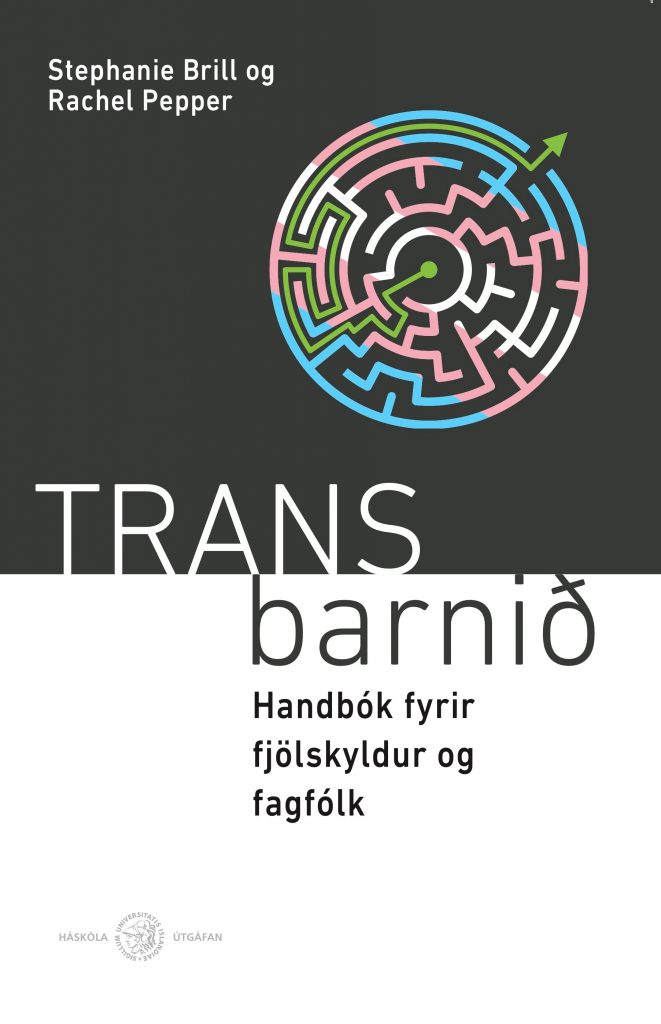
You previously mentioned that most schools are making inclusive improvements “after the fact,” instead of beforehand.” Do you think that’s changed since 2019?
“I have a feeling that there is slowly becoming more knowledge and understanding on trans issues in society, but it’s mostly driven by trans people themselves and a few allies. More trans kids coming out does help move the issue forward, but of course it shouldn’t be on them. At my office we constantly try to get information into the city system.
We have our resources, open lectures and workshops, and now through Rainbow Certification which we set up for Reykjavík City workplaces to apply for and take part in. It is quite a new program. Covid really slowed the momentum down. There have been a few workplaces that have been certified, but there is currently only one primary school that has taken part, Laugarnesskóli. They have been really great!
As with all training, it’s really what happens after the lectures and workshops that matters; it’s taking all that the staff have learned and applying it to their work. It’s often tricky to get equality work of any kind to be sustainable, but I have high hopes. I’m also currently in a work group for the city on gender and LGBT+ studies at the Department of Education and Recreation at Reykjavík City. We will finish our work next autumn and put forward some ideas about how to do better going forward. I’m hoping they will be well received and we will see more improvements. We are also currently putting together another work group that will stake out the situation in school and recreation buildings with regards to gender neutral facilities. So we are trying to tackle issues from many angles.”
“We are also currently putting together another work group that will stake out the situation in school and recreation buildings with regards to gender neutral facilities.”
Is there anyone in your group of family and friends that’s impacted greatly by the work you do? How does that affect you and how you approach your work?
“I think most people around me have been impacted in some way, just because of my ideology and the knowledge I’ve gained through my studies and work. My partner is of course impacted, and we are very much on the same page. We have two kids who are definitely impacted: I practice what I preach!”
This article is brought to you by GayIceland and sponsored by the city of Reykjavík.

